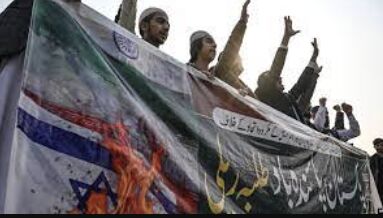Pakistan-Iran Cross-Border Air Raids Escalate Tensions and Rally Support for Military
The cross-border air raids between Pakistan and Iran have ignited tensions and resulted in a collective death toll, with both sides accusing the other of failing to tackle militancy spilling over their borders.
The cross-border air raids between Pakistan and Iran have created a devastating impact on both sides, increasing tensions in an already volatile region. The attack resulted in a collective death toll with both sides accusing the other of failing to tackle militancy spilling over their borders. Tehran said it hit Iranian terrorist group Jaish al-Adl with drones and missiles, prompting Islamabad to recall its ambassador and debar his Iranian counterpart. In response, Pakistan's military said it hit Pakistani ethnic Baloch separatists in Iran, where Islamabad said militants are thriving in ungoverned spaces.
‼️🇵🇰🇮🇷 UPDATE: Are these cross border attacks in fact a collaboration to suppress Mossad backed terror cells within Iran and Pakistan?
— Truth_teller 🇷🇺 (@Truthtellerftm) January 18, 2024
❌Pakistan Army: Precision strikes using drones and missiles carried out on Iranian territory
❌The first footage of the A-100 300-mm MLRS… pic.twitter.com/gPRJRkf49O
The escalating situation has caught the attention of global powers with China and Russia urging both sides to exercise restraint. As the conflict continues, it coulf create a rally-around-the-flag effect that could bolster support for Pakistan's military, especially in the run-up to the elections. The attack saw Pakistan's retaliatory strike against Iran as an image boost for the Pakistani military, especially at a time when it has been facing criticism at home. The retaliatory strike has the potential to serve as a source of increased support for the military establishment. The looming threat of war in the region has the potential to foster a jingoistic sentiment in Pakistan, further solidifying support for its military.




